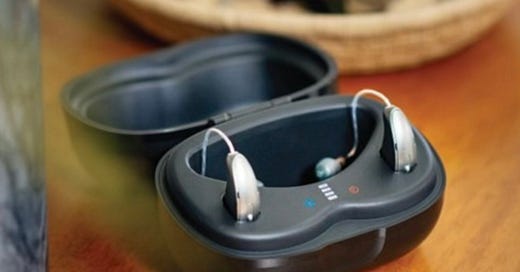What Happens When You Experience Hearing Loss at Work?
Quite simply: your on-the-job performance suffers
According to the Centers for Disease Control and Prevention, roughly one out of every five people in the workplace (aged 20-69 years old) suffer hearing loss in at least one ear.
Indeed, workers in job categories that tend to be noisy, like construction and factory work, tend to develop more hearing loss than the working population as a whole (and that's with OSHA-required ear-protection).
A worker in any working environment can experience hearing loss.
It happened to me.
On the phone, wearing a headset, I could hear and understand the other party clearly. Same with the in-ear monitors that I use for my podcast; I don't miss what my guests are saying.
But place me in a face-to-face situation, in a hard-surfaced area like a lobby or a restaurant or an auditorium, and I am bound to miss whole conversations.
Hearing loss is infuriating.
Five years ago, I got my first set of hearing aids. And I could not believe how much they helped me to track conversations and verbal cues.
This week, I got a new set of AI-powered hearing aids. They are small and yet powerful, designed to use AI to adjust to changing venues and experiences.I’m impressed.
It is a looming workplace issue.
And the cohorts in the active workplace will need hearing assistance in increasing numbers and sooner in life; earbud blasting will inform more, and earlier onset, hearing loss.
When those career professionals need assistance, AI will support them with the technology that they need to hear well, to engage, and succeed.
That will get more people to their work fit.
And when it happens our best days lie ahead.
Image credit: Starkey
I’m Dan Smolen. As host and executive producer of WHAT'S YOUR WORK FIT? I help you make your work and workplace decisions result in better and more satisfying professional experiences and outcomes. I am also a Founding Member of The Future of Work Alliance.




